How can a breath-hold class help with scuba?
By Chris Bustad
Unless you have been under a rock, you have heard that freediving is growing. Classes are being offered all over. Maybe you have even thought about taking one and that’s great, you should! There is a lot you can learn about yourself in a freediver course and there are stress reduction and breathing techniques that will absolutely help your scuba abilities.
But what if there was a breath-hold course that wasn’t all about meditating?
A course that wasn’t about putting you in the most relaxed state you can get into before trying to hold your breath. One that sticks you into a high stress, high heart-rate environment and then tells you, “now it’s time to hold your breath!”
There is… it’s called Breath-Hold Survival.
This is a course that Kirk Krack, founder of Performance Freediving International, developed to fulfill a request from professional big wave surfers. From there, it morphed into a course that is used to teach US, Canadian, and British Special Forces what to do when going up is more dangerous than staying down and how to address the problem underwater.
This course has been used by athletes ranging from Red Bull and Oakley surfers, Racing Cup teams, and even snowboarders, skiers, e-gamers, and Olympic competitors. There are physiological reactions that occur within your body when you train breath-holding, such as splenic contractions, where the spleen will contract to expel older red blood cells into your circulatory system after as little as a one-minute breath-hold, giving you an advantage over athletes that don’t train this way. The result is similar to blood doping, but it is natural and not illegal!
So how can this help your scuba abilities?
Glad you asked! First, any in-water training you receive will make you more comfortable in the water. This will allow you to handle high stress situations without allowing them to become a problem. You will be more likely to remain calm and deal with the issue. Since this course specifically targets situations where “stuff” is hitting the fan, so to speak, this will help even more during an emergency. And, it’s all done without being able to breathe off your regulator. This can also help if you are getting in or out of the water in the surf zone and get knocked over or lose the regulator from your mouth.
Confidence in the water will make you more relaxed as well. As you know, the more relaxed you are, the less air you consume, the longer your dive will be. And, don’t forget about the breathing techniques I mentioned earlier! The more control you have over the way you breathe, the longer your dive will last.
The course breakdown
The Breath-Hold Survival course is a specialty that typically takes place over 4 days and is based on the PFI Intermediate Freediver course. There are 3 confined water sessions and two open water sessions. This class is available to anyone comfortable in the water with average swimming skills. There is also a pool only certification available if you don’t want to head out to open water.
Some of the skills you will be practicing include relaxed static breath-holds on a full breath (static is a breath-hold on the surface without moving), relaxed statics on an exhalation, and duress statics on full breath (getting tossed around like you are in the surf zone or a river). You will also learn safety techniques so that you can continue to practice with a trained buddy after the course, some entry techniques for cross-training with freediving, and more.
So, go take a Freediver or Breath-Hold Survival course and create more comfort in the water that will help you avoid a potentially serious situation altogether or have the tools in your toolbox to better handle one! See you in the water.

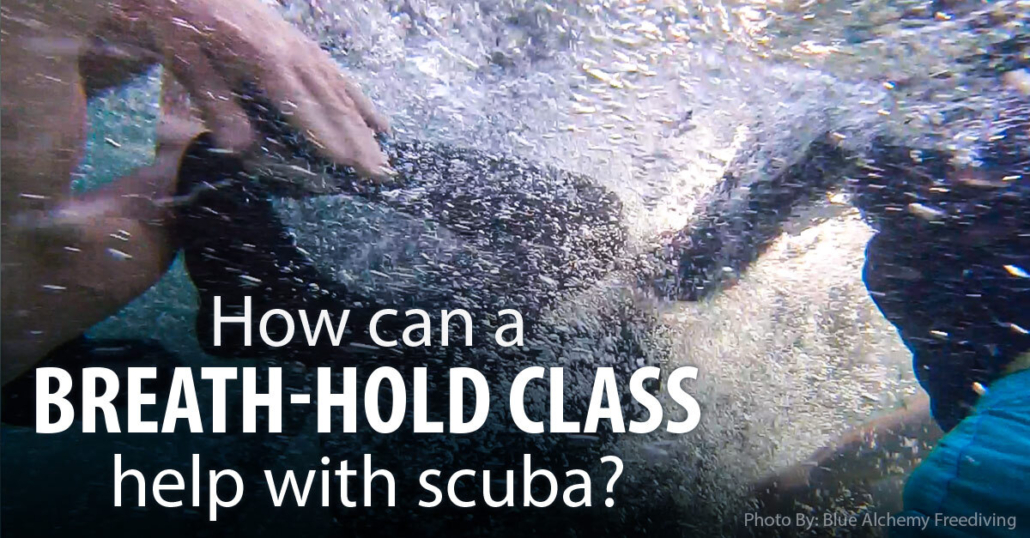
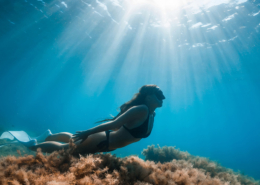


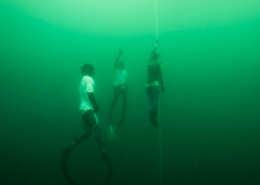

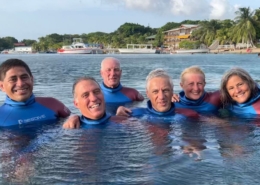
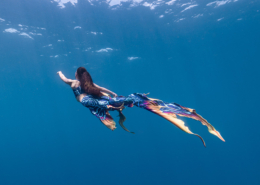
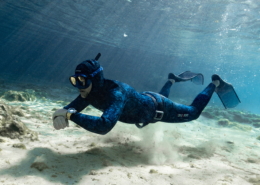
Leave a Reply
Want to join the discussion?Feel free to contribute!